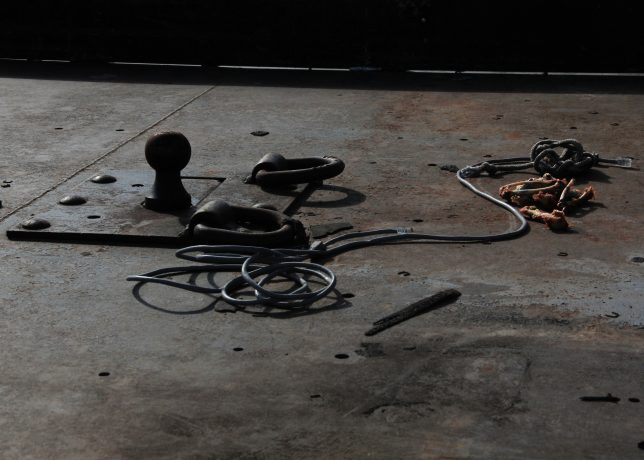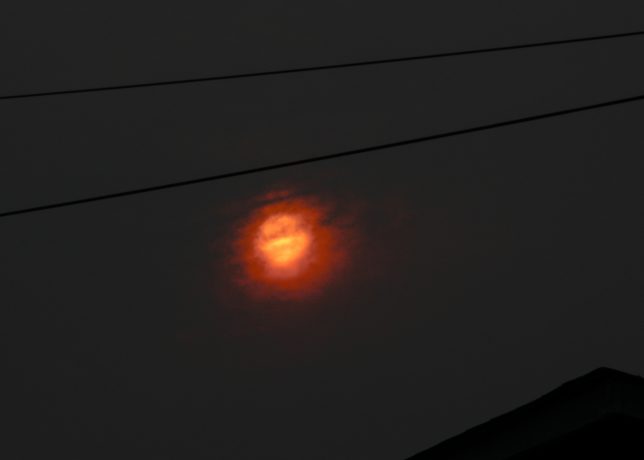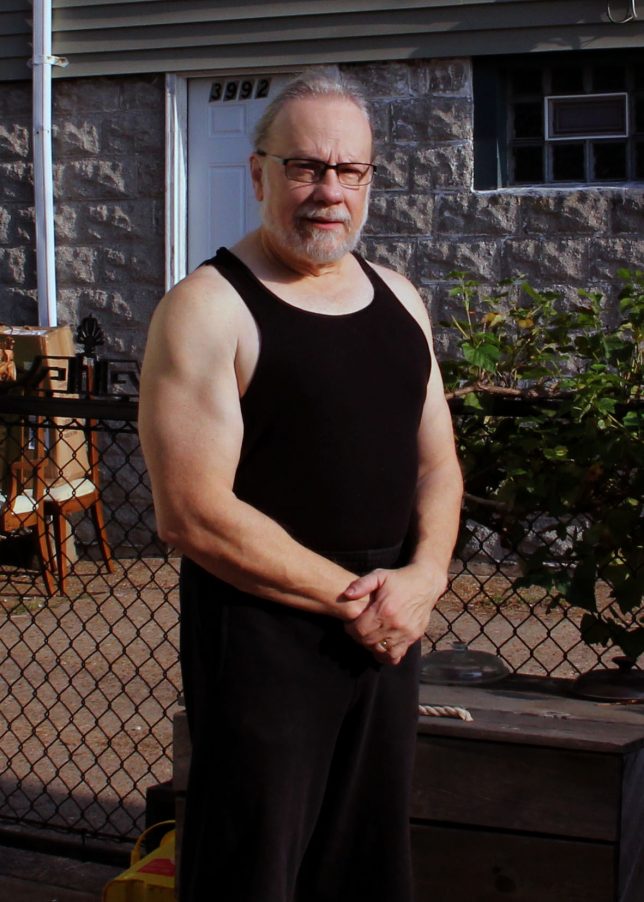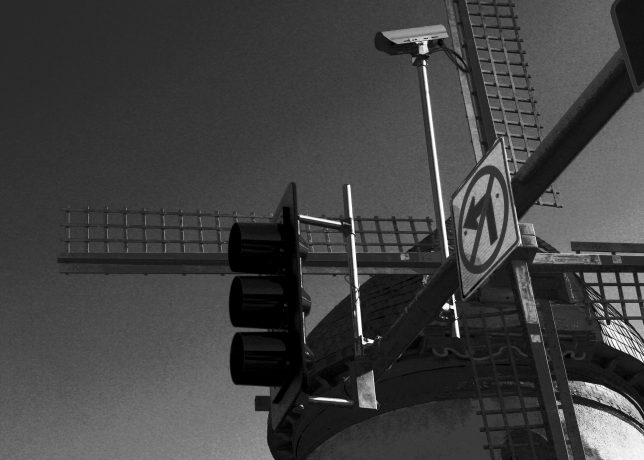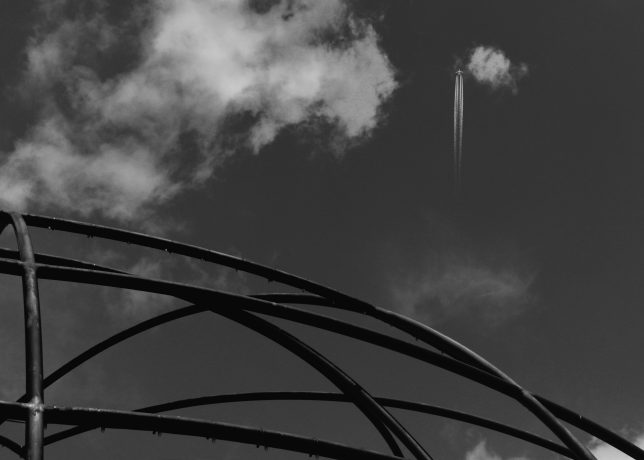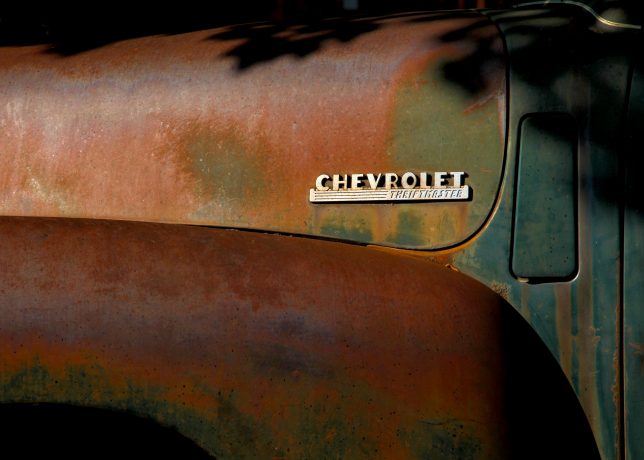Category: Art
-
Difficult Books
Change of angst.
I saw one of those clickbait surveys, 200 “difficult” books, that challenge you by offering titles to select and then rating your score. I took it because it’s amusing to see what the zeitgeist thinks is worthwhile literature, and this one was better than some, but several of the titles gave me pause, thinking, that’s a difficult book?
I wonder what criteria are being used, other than perhaps page count and venerable authors.† Also, what do they mean by “difficult”—conceptually challenging or just a slog?† I mean, certainly Atlas Shrugged is a “difficult” book, but not the same way Ulysses is, or even the same way Oliver Twist is. Ulysses requires some intellectual acumen on the part of a reader, some familiarity with history and literature, a bit of theology, and an ability to recognize human foible in any of dozens of various guises.† Atlas Shrugged merely requires a strong stomach and a lot of patience. Being tone deaf to good literature would help as well. And of course what the latter has to say about the human condition vis a vis economics is meaningless drivel compared to the portrayal of class abuse in Oliver Twist.† Telling the difference and knowing why the one doesn’t stack up to the other would be a good start to determining what qualifications one is using for “difficult” reads.
But it’s a good question, what qualifies as a difficult—in this case, read a challenging—book.† And by challenging I mean a work that forces you to think about the text and risk change by having read it deeply and honestly.
Admittedly, there are some novels which are merely difficult through obscurantism. They’re hard because the writer didn’t have much to say but didn’t want to admit that.† They usually don’t last past the life of the author. Sometimes they don’t last past the initial print run.† But the difficulty of the structure and the sentences and the fog of pseudointellectual posturing is in these instances little more than a guarantee of early extinction.
The problem is, sometimes a really good work bears some resemblance to such work. It becomes easy to overlook the real virtues of such novels because audience for them is harder to find.
Take Moby Dick by Herman Melville. Disclaimer: I do not care for this novel. I find it difficult to enjoy the sentences. When someone pointed out to me that it has really funny parts, I was surprised.† The torture of the sentences prevented my ever seeing that, but I was willing to be shown. I’ve been through again, recently, and I’m prepared to admit that it is a Great Novel.† But it is seriously difficult.† And part of the difficulty is that Melville loaded his sentences with multiple meanings, subtext, and unpleasant reality.† It is difficult because what it has to say is difficult to say in such a way that the meaning will get past the innate cultural barriers to recognition.
But it survived because that recognition is to be found and eventually people found it and the impact was enormous.
It bears multiple readings.† Unpacking it takes time. Such a book demands the two things modern readers seem to lack the most:† time and patience.
But going through that list of 200 “difficult” books what I found mainly were books that are long and involved and in some instances convoluted (Gravity’s Rainbow, Infinite Jest) and books with Reputations. The latter are the kinds of books you might find on readers’ shelves, but rarely read.† They know somehow they should read them, but they just haven’t.† And may never.† Because…well, they’re hard.† They reward patience, necessitate experience, require a bit of preparation, and yield nothing to casual taste.
It put me in mind of some of our recent teacup typhoons in science fiction.† Why struggle to understand something that makes the brain sweat when all the thrills and reassurance that you are smart can be found in the shallower waters of quicker reads?
Well, the answer is unsatisfying to a particular kind of reader.† You read the hard books because they make you more.
I won’t say “better” because I don’t know quite what that means in this context (or whether that sort of judgment has any place in talking about literature), but the expansion of the psychť is a real thing and it is only achieved by constantly taking on the difficult.† Only by doing so do you reach a point where you can discern the real difference between something like Atlas Shrugged (dense but superficial, and in many ways fraudulent) and a Gravity’s Rainbow (dense but meaningful, expansive and revelatory).† But more to the point, a book like Atlas Shrugged will not change you—if you are open to its message, all it will do is pacify your doubts and reinforce your prejudices, without ever challenging you to think about people or history in a different way, while the Pynchon cannot help but call into question pat beliefs and unsettle comfortable preconceptions.
So when such lists are constructed, it’s worth asking: how will these books make me different or new?† How well do they tell the truth?† How much do they expose about self-deception, deceit, and the lies of the world?† That’s where the “difficult” part is.
A thousand pages of froth changes nothing.† It just takes a long time to get through.
-
Annual Pose
Okay, so maybe this is going to be a thing. I think I put my vanity in a box and on a shelf because I don’t wish to be vain. I am, somewhat. I am saved from being an ass about it by being basically too lazy to really ¬†attend to it, at least to the extent of making myself an object of derision. But it’s there, I admit it.
Most of my vanity has to do with the interior. I want to be a certain kind of person. I wish people to see the kind of person I’m trying to be. And I want what they see to be genuine. Maybe “vanity” is the wrong word, since too often it attaches to matters of surface only. And maybe I use that word to caution myself to pay attention to what matters.
In any case, I work at maintaining certain standards, both physically and mentally. I am not as successful at any of it as I would like to be, but it’s the journey, right? Whatever.
I turned 63 this year. I cannot quite get my head around that. In another generation I would be two years from falling into an actuarial expectation of being dead.  I would be spent, replete with health problems, fading.  When I was a child, 65 was the age at which people died.  Today?
But that’s not even the weirdest part. ¬†The weird part is the history that I have personally lived through, knowing it¬†as history, and being in a position to represent some of that history. ¬†The other weird part is that, intellectually, I still see myself as somewhere around the mid to late 30s.
As I say, weird. ¬†However, I’ve been posting annual updates like this–not as regularly as perhaps I should, but I see now that it might be a useful thing.
So. This morning, after coming home from the gym, I asked Donna to take a couple of pictures.
I’m weighing in at round 160. ¬†I no longer bother getting on a scale. ¬†I go by how well my clothes fit and how out-of-breath I get running down the street. ¬†(Yes, I occasionally break into a sprint when I’m walking the dog, just because. ¬†I can still do three blocks at a good run.)
The hair is thinner, grayer, the wrinkles a bit deeper, especially when I’m facing into the sun.
I feel tired a great deal of the time.
But aside from working out regularly, I work a full-time job, still play music, and I’m still trying to make the best-seller lists.
And chores. ¬†Don’t forget chores.
But–most importantly–I still feel like I have options. ¬†“What do you want to be when you grow up?”
A writer.
A photographer.
A musician.
A friend.
Someone people might possibly be glad to know.
The thing is, how to know when or if any of that is achieved? ¬†I have to be comfortable in my own skin first. ¬†And my skin is…
Well, not, perhaps, for me to say.  But I have every intention of sticking around long enough to find out.
So this is 63.
Let me post another photograph, to follow, of something maybe a little more interesting. ¬†(Remember, one of the things I want to be is ¬†photographer…?) ¬†And leave off with something more abstract to contemplate.
Thank you all for putting up with me all this time.
-
A Picture Instead
The last several weeks have been alternately nerve-wracking, inspirational, depressing, too-cool-for-school, enervating, elating, and disappointing. The drain on resources has left me unable to judge overall. ¬†Consequently, I’m being very chary what I write here. ¬†So I’m going to put what energy I have into some fiction.
In the meantime, here’s a new picture. ¬†Enjoy.
-
A Note On Personal Taste
I had a conversation yesterday with a coworker about music that ended up going into some places I didn’t like. We have these¬†faux clashes from time to time, they’re always–always–done with great good humor and the self-awareness that we’re just, you know, funnin’. ¬†But this time I actually found myself getting a bit worked up.
It was about music. He took exception to my categorical dismissal of punk as essentially garbage. Fair enough. Superlatives are always wrong. Do I hate punk? Hate is a strong word. I loathe it. I find its self-justifications back in the day one with all anti-intellectual movements. ¬†The amount of punk I’ve listened to, while small, has yet to offer anything that might suggest there’s any actual ability on display. The whole point of it back then was to loudly and hideously repudiate progressive rock and the associated slickly produced pop that borrowed many of the aesthetic trappings of prog even while it very decidedly was not prog. ¬†Along comes little Johnny Rotten to make a counter-statement and reduce the caliber of rock back to some basement level from-the-gut roar that’s supposed to be what rock is all about in the first place, but hell, even in its infancy rock’n’roll could boast better musicians on their worst day than what styles itself as punk on its best.
That is my opinion. ¬†I’m an Old Fart, so deal with it. ¬†I listen to music for the delightful things it does among my synapses and my synapses are 62 years old and impatient with three chords, a bridge, and a lot of disingenuous screeching. I long since moved over to jazz because I want good playing, nuance, sophistication, and tonal qualities that surprise in a delightful way.
Had punk come out of the adolescent desires of a bunch of wankers who couldn’t play well but still wanted to be ROCK STARS, I probably wouldn’t feel quite to strongly about it. ¬†But it didn’t. ¬†(Maybe some of them came out of this, but they were swept under the tent of…) ¬†It came with a manifesto and set about trying to wreck a cultural aesthetic that was pushing toward some kind of transcendence.
Pompous?  You bet.  And a lot of progressive rock was over-the-top, arpeggios and glissandos for the sake of showing off.  Partly, this was a consequence of the way such industries work, always demanding the next new thing that sounds pretty much just like the last thing that sold a gillion records and sold out stadiums for umpteen months.  The money machine driving variety for its own sake and to hell with any kind of genuine artistic sense.  Hell, I would have cut loose with something completely Other under those pressures.
But while that is understandable, what I object to is the abandonment of skill and attention to the actual musicality that came with punk.  I dislike punk because, basically, it sounds terrible.
To me.
Now, my friend started offering examples of “good” punk and it was interesting. ¬†Because the examples offered were of bands that had a sense of that musicality and, aside from poor vocals, had moved away from the primal hammering of early punk toward something more…nuanced? ¬†They…progressed. ¬†They got tired, I suppose, of just channeling dissatisfaction and rage and realize that their instruments could actually be used to make…you know…music.
I loathe country and western as well, but I would never say that those artists have no ability or talent. ¬†They can play! ¬†It seems a shame that so often they use their considerable ability to pretend that they can’t, but I respect them as musicians, I just don’t care for their product.
I suppose I am unfair about it, but I can’t help it. ¬†I really despise punk rock. ¬†Not for the impulses that drove it but for the categorical rejection of musicality aimed at bringing down genuine musicality. ¬†I get rage. ¬†But we did that in the Sixties and it sounded¬†good!
Except for some of the singing. ¬†I have to admit, the whole aesthetic of the singer-songwriter who’s gonna do his or her stuff whether they can carry a tune or not never impressed me. ¬†It seemed for a while we were getting over that nonsense, but here comes punk bringing it all back with a vengeance. ¬†“I don’t wanna¬†practice! ¬†I don’t wanna take voice lessons! ¬†I don’t wanna have to be¬†good! ¬†I just wanna be a¬†STAR!” ¬†Or, so they claimed, anti-stars. ¬†Which still required an audience, and the larger the better, which means a following, which means popularity of some sort, which makes you, if you get enough of it, let’s see…a Star.
I just wanted to get some of that off my chest.  Thank you for your indulgence.
